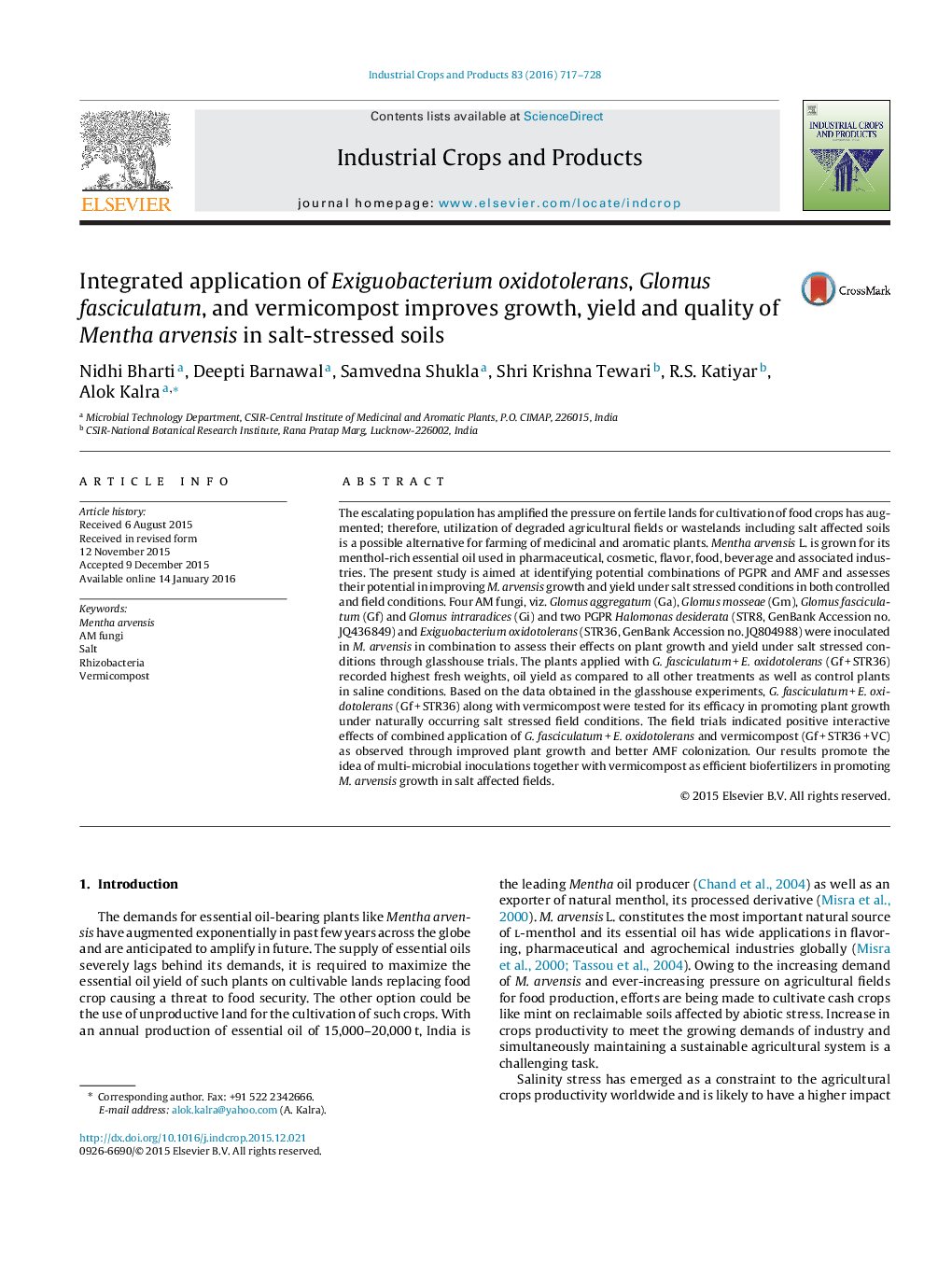| Article ID | Journal | Published Year | Pages | File Type |
|---|---|---|---|---|
| 4512289 | Industrial Crops and Products | 2016 | 12 Pages |
•Bio-inoculants improve Mentha yield and growth in salt stressed soil.•Exiguobacterium oxidotolerans and Glomus fasciculatum function synergistically.•Multi-microbial systems can be efficient technology in stressed soils.•Low fertility soils can be utilised for production of Mentha arvensis.
The escalating population has amplified the pressure on fertile lands for cultivation of food crops has augmented; therefore, utilization of degraded agricultural fields or wastelands including salt affected soils is a possible alternative for farming of medicinal and aromatic plants. Mentha arvensis L. is grown for its menthol-rich essential oil used in pharmaceutical, cosmetic, flavor, food, beverage and associated industries. The present study is aimed at identifying potential combinations of PGPR and AMF and assesses their potential in improving M. arvensis growth and yield under salt stressed conditions in both controlled and field conditions. Four AM fungi, viz. Glomus aggregatum (Ga), Glomus mosseae (Gm), Glomus fasciculatum (Gf) and Glomus intraradices (Gi) and two PGPR Halomonas desiderata (STR8, GenBank Accession no. JQ436849) and Exiguobacterium oxidotolerans (STR36, GenBank Accession no. JQ804988) were inoculated in M. arvensis in combination to assess their effects on plant growth and yield under salt stressed conditions through glasshouse trials. The plants applied with G. fasciculatum + E. oxidotolerans (Gf + STR36) recorded highest fresh weights, oil yield as compared to all other treatments as well as control plants in saline conditions. Based on the data obtained in the glasshouse experiments, G. fasciculatum + E. oxidotolerans (Gf + STR36) along with vermicompost were tested for its efficacy in promoting plant growth under naturally occurring salt stressed field conditions. The field trials indicated positive interactive effects of combined application of G. fasciculatum + E. oxidotolerans and vermicompost (Gf + STR36 + VC) as observed through improved plant growth and better AMF colonization. Our results promote the idea of multi-microbial inoculations together with vermicompost as efficient biofertilizers in promoting M. arvensis growth in salt affected fields.
